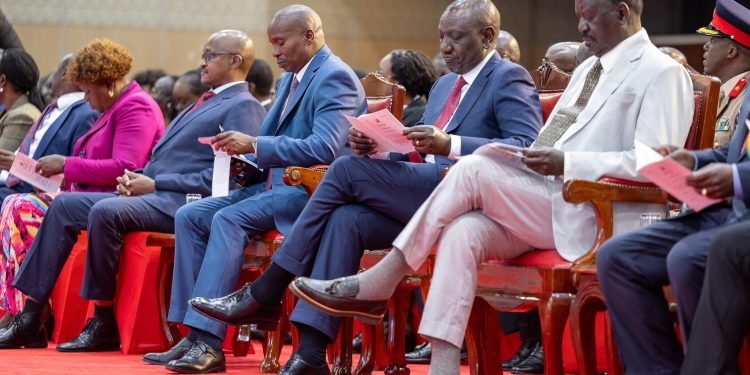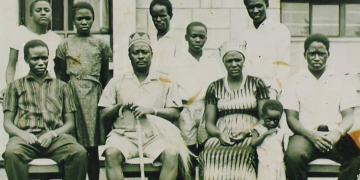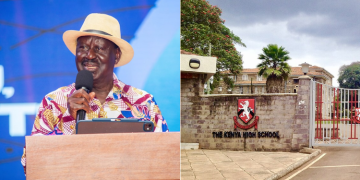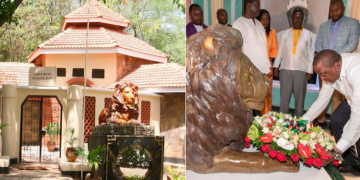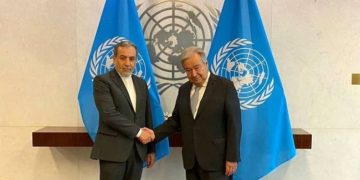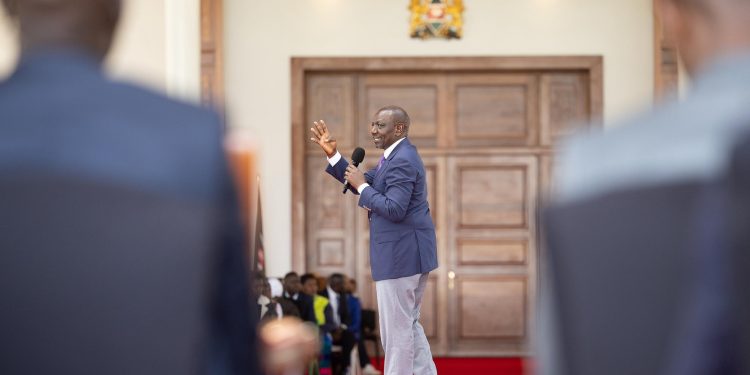President William Ruto is a man of many talents. That perhaps explains his rapid rise to power. But one skill he is yet to master is walking his talk.
At the height of the Gen Z revolt in July 2024, the loudest complaint was that the government thrives on promises. Grand pledges. Big speeches. Zero delivery.
Ruto himself admitted at one point that his promises “take too long to reach the grassroots.” But instead of reflecting, he carried on. More promises. More speeches. More theatre.
The latest performance is his declaration that August 27 will henceforth be Katiba Day. With that, he aims to have Kenyans view him as a champion of constitutionalism and democracy. But history and lived reality tell a very different story.
Ruto, the Opponent of the 2010 Constitution
When Kenyans fought, bled, and died for the 2010 Constitution, Ruto campaigned aggressively against it. As Agriculture Minister, under the President Kibaki regime, he warned it would “destroy land ownership and family values.” He lost that battle, but today he postures as the Katiba’s saviour.
Silence in the face of Constitution violations, Uhuru Kenyatta
As Deputy President under Uhuru Kenyatta, Ruto was second in command when some of the worst constitutional abuses took place.
In October 2017, Human rights groups and the Independent Police Oversight Authority documented killings of at least 67 protesters, many shot with live bullets despite court warnings. Article 37 guarantees the right to assemble peacefully. Silence from Ruto.
Also Read: Katiba Day: Why Ruto Opposed Kenya’s 2010 Constitution
In January 2018, NTV, Citizen TV, and KTN were switched off by the state to block coverage of Raila Odinga’s symbolic oath. The High Court ordered their restoration. The government stalled. Article 34 protects media freedom. Silence from Ruto.
In February 2018, the High Court ruled that the deportation of lawyer Miguna Miguna was illegal and unconstitutional. The government ignored it. Miguna was sedated, bundled into a plane, and exiled to Canada. Ruto never defended constitutionalism then.
Between 2017 and 2019, Courts issued multiple rulings against police harassment of journalists, unlawful demolitions in Nairobi’s informal settlements, and the unlawful detention of activists like Boniface Mwangi and Okiya Omtatah. The Executive ignored them. Ruto said nothing.
On Aug 20, 2021, the Court of Appeal upheld the High Court and affirmed that a President cannot initiate a “popular initiative.”
Constitution Violations under his own presidency
Since 2022, the story has remained unchanged. In fact, the record shows a consistent contempt for the Constitution.
In November 2023, the High Court declared the Housing Levy unconstitutional. The Court of Appeal upheld the ruling in January 2024. Yet, the government continued to deduct salaries illegally for months before bowing to pressure.
In July 2023 and July 2024, courts barred police from using live bullets and excessive force on protesters. The rulings were ignored. Scores of Kenyans were shot dead. Under Ruto’s watch, the state weaponized the police against its own citizens.
In July 2023, Justice Thande Mugure suspended sections of the Finance Act that imposed new taxes without public participation as required under Articles 10 and 201. The Executive brushed off the suspension, rushed to implement deductions, and only later pretended compliance.
Additionally, Ruto’s State House has allegedly packed commissions, parastatals, and independent offices with loyalists, defying Article 232’s demand for merit and diversity.
In March 2023, he appointed 50 Chief Administrative Secretaries. By July, the High Court declared the move unconstitutional. But the swearing-in had already been done.
In July 2023 and July 2024, courts barred police from using live bullets and excessive force on protesters. The rulings were ignored. Amnesty International and the Kenya National Commission on Human Rights documented scores of deaths, disappearances, and unlawful detentions. Under Ruto’s watch, the state weaponized the police against its own citizens, proof that Article 37 (right to protest) and Article 26 (right to life) remain empty ink on paper.
Also Read: Ruto Declares August 27 Katiba Day
In 2023 and 2024, the Controller of Budget raised concerns that the National Treasury was withholding billions owed to counties, thereby violating Article 203 on the equitable sharing of revenue. Governors protested, but disbursements were used as political bargaining chips.
In 2023, the government attempted to unilaterally transfer certain Kenya National Examination Council (KNEC) functions to the Ministry of Education without obtaining parliamentary approval, thereby breaching the autonomy of constitutional commissions. Critics called it executive capture through the back door.
War on Media
Article 34 guarantees media freedom; yet, Ruto’s leadership has overseen an escalating hostility.
Senate Majority Leader Aaron Cheruiyot, in Jan 2023, branded Kenyan media “cartels.” Others in government referred to journalists as “enemies of the people.”
State advertising threatened to be cut off from “hostile” media houses.
In May 2023, journalists were beaten and teargassed while covering protests, and in July 2024, at least 15 reporters were injured.
On August 21, 2025, journalists from the Standard Group, Royal Media Services, TV47, and Citizen TV were attacked, vehicles were destroyed, their equipment was stolen or destroyed, and they sustained injuries while covering Rigathi Gachagua’s homecoming procession from the US. According to the available reports, no police officer or assailant has been prosecuted in connection with the incident.
Meanwhile, State House–aligned bloggers routinely attack independent journalists, especially women, with disinformation and abuse.
The hollow theatre of Katiba Day
To be fair, a symbolic Katiba Day could have meaning. Constitutions are living covenants. Pausing to reflect on their history matters. But symbolism without fidelity is hypocrisy.
A free press is not a luxury; it is a necessity. Protest rights are not suggestions. Court orders are not advice. They are the very bones of democracy. When leaders ignore them, they erode the very house they claim to defend.
Ruto has been called a man who does not walk his talk. As Katiba Day approaches, Kenyans must be clear: this is not about presidential speeches or hashtags. It is about fidelity to the rule of law.
The Constitution belongs to the people, not to presidents. Katiba Day will mean nothing unless leaders are held accountable to it.
Follow our WhatsApp Channel and X Account for real-time news updates.
